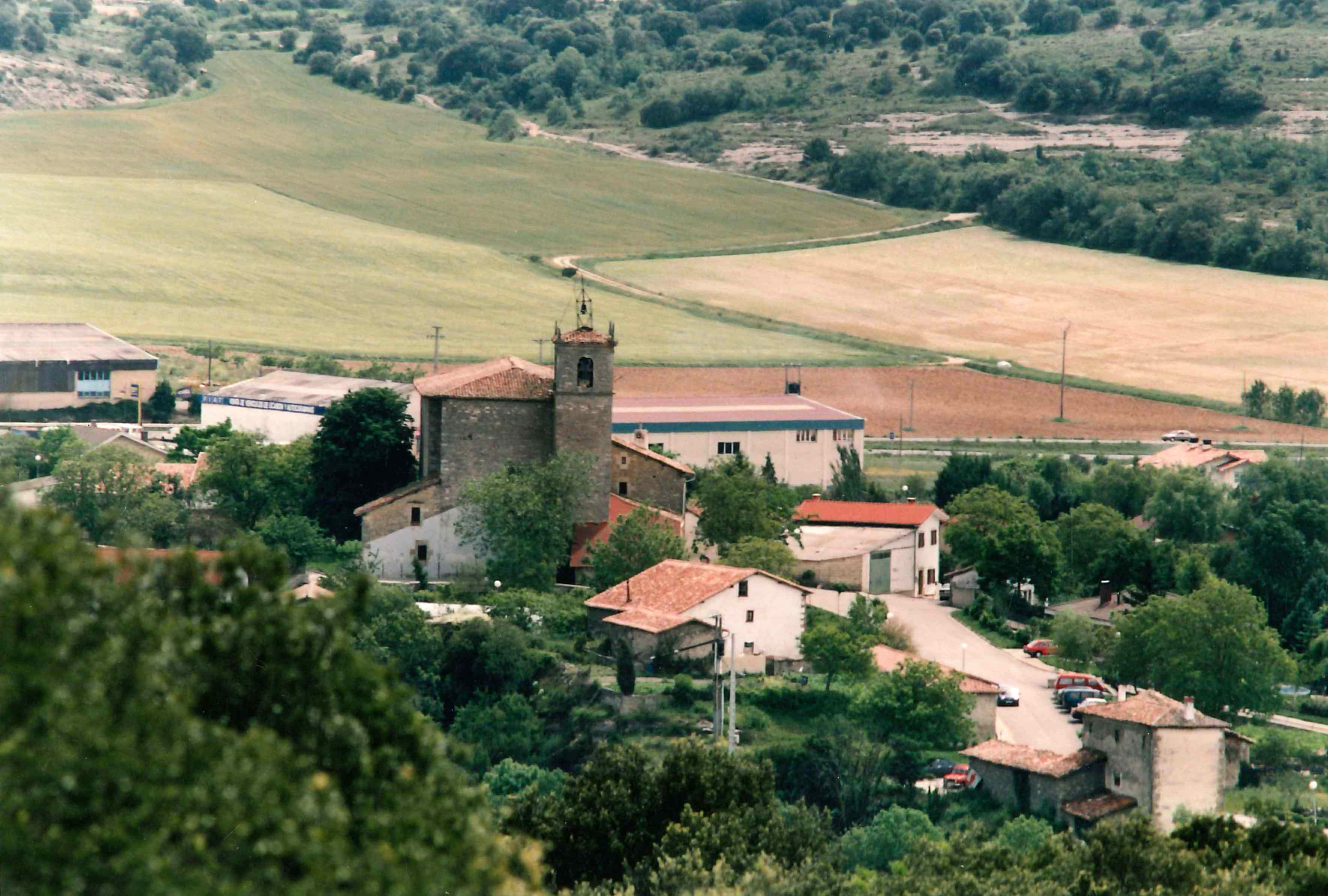Basque ethnography at a glance

General view of Apodaka (Álava). Isidro Sáenz de Urturi.
In the plains of Álava the term ojalatero does not refer to the person who makes, repairs and sells tinware or hojalatero, nor to those who during the Carlist wars wished, from the rear, for the victory of Carlism, also known as ojalateros (derived from ojalá —let us hope—).
In several villages across the plains, such as Apodaka, only head-of-household farmers or tenant farmers held villager status: they were recognised vecinos. The rest of the adults, provided they had settled in the village for at least half a year, were considered ojalateros. Accordingly, the priest, the village doctor, the veterinarian, teachers, guards of the Provincial Council, road workers, the shepherd, and day labourers were all ojalateros. Married sons of active land or livestock farmers living under the same roof but in secondary dwelling units were likewise regarded as ojalateros.
They had no rights and no duties within the community. They could not attend council meetings nor occupy a position of responsibility in the assembly except for that of secretary, yet without voice or vote. They could not undertake certain communal work, for instance road construction and maintenance. However, they were allowed to take turns to carry out other shared jobs: sacristan tasks, bell-ringing, livestock-caring shifts and clearing snow off the sidewalks fronting their property. Whereas each hearth or family home was assigned a space in church, ojalateros only had the right to half of it.
When an ojalatero was called for a council meeting or either requested a hearing in order to make his own case, he had to stand because did not have a seat. The chairman would allow him to explain himself; once he answered, the third in charge walked him to the door and invited him to leave, which he did without turning his back on the council members at no time. If the appeal demanded urgent response, he would wait outside; otherwise, he was later notified at his address.
As long as the male head of the family did not retire, his sons could not become full villagers, and therefore, exercise any authority or perform public office. Single sons of vecinos or ojalateros alike, and servants were called mozos. Only emancipated mozos who actually lived and slept in a house listed on the hearth money rolls and who had paid the council a cántara (liquid measure equivalent to 16 l) of wine could come to enjoy the prestige of being a villager. The same amount of wine was required to stop being a villager.
This tradition vanished in the 80s.
Isidro Sáenz de Urturi – Etniker Álava – Etniker Euskalerria Groups
Translated by Jaione Bilbao – Language Department – Labayru Fundazioa

